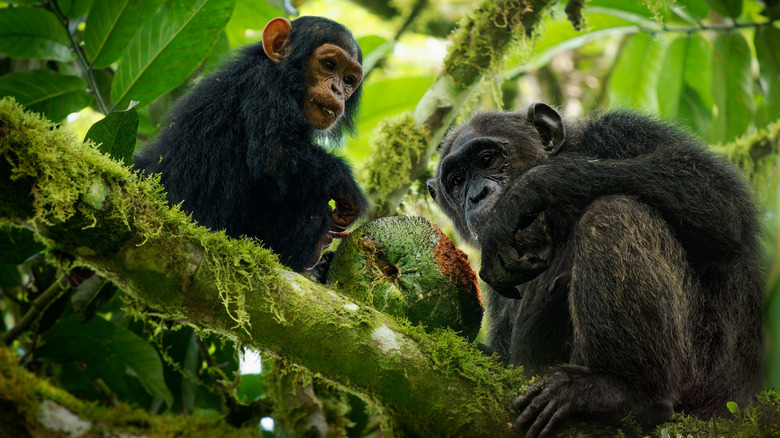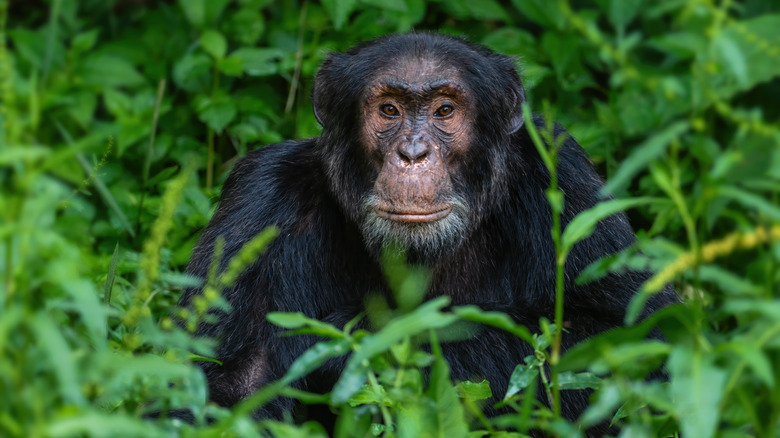Something Strange Is Happening With A Chimpanzee Population In Nigeria
Nature often finds ways to persist through challenges, whether from direct human actions, as seen in the strange case of Chernobyl's free-roaming dogs, or indirect human contact, such as adapting to habitat shifts caused by people-induced climate change. For a small, genetically distinct population of chimpanzees in Nigeria, their very existence sharply contrasts with growing conservation concerns.
Footage of Nigerian-Cameroon chimpanzees has been captured on a trail camera within the Ise Conservation Area. With fewer than 25 individuals estimated to live there, this group is genetically distinct from others, having lived within the 8,000-acre conservation site apart from their closest relatives. In an interview with Mongabay, ecologist Katy Gonder, who previously studied this group in the '90s, described the discovery as surprising, saying, "The few genetic samples collected suggest they are a distinctive group with a unique genetic history distinct from their counterparts in eastern Nigeria and western Cameroon." She added, "It's remarkable that they are still present in such a small and isolated area."
The discovery, though noteworthy, uncovers a small group within an already endangered species. The Nigeria-Cameroon chimpanzee is currently listed as endangered by the International Union for Conservation of Nature, with a report from 2015 indicating a decline in their numbers and estimates showing fewer than 6,000 individuals remaining. For the small troop of unique chimpanzees found in the Ise Conservation Area, many challenges lie ahead.
Conservation efforts in Nigeria and Cameroon face challenges in helping chimpanzees
The discovery of the genetically unique Nigeria-Cameroon chimpanzees in the Ise Conservation Area is an amazing case of animals that survived extinction and made a comeback. However, this group's situation stems from a long, tragic history. With their natural habitat shrinking due to increased cannabis cultivation and high black-market prices, the chimps only had their home become a protected zone in 2020 after their near-extinction became a priority for conservationists to save any remaining habitats.
The rest of the chimpanzee population faces similar threats, with many seeking isolation to stay safe. Sadly, isolation also presents unique challenges, including an increased risk of diseases from outside sources and an inability to receive aid during potential catastrophes. These threats, which can determine the future of the chimpanzee, highlight the importance of protected areas in Nigeria and Cameroon. Fortunately, those who want to assist the chimpanzees of Ise and other vital conservation sites in the region can support initiatives like the SW/Niger Delta Forest Project.
For more conservation updates, check out how South America's largest mammal thought extinct was spotted in a protected zone recently.

